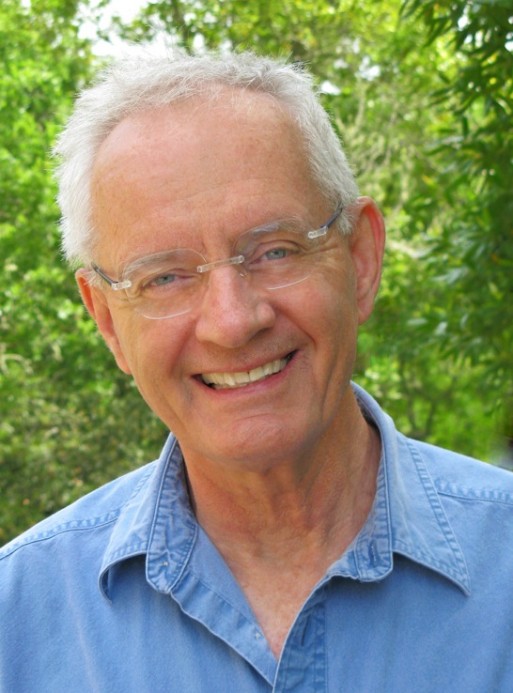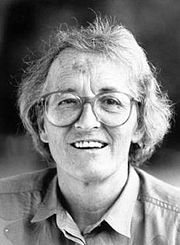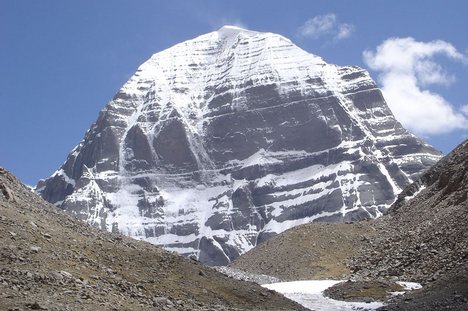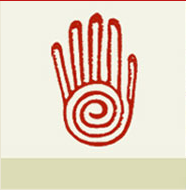Dale Borglum is the founder and Executive Director of the Living/Dying Project, a group that offers healing to those at the end-of-life and their caregivers. Dale has had a long and impressive career in healing, spirituality, and caring for dying people, and has worked with many other influential names in the field. We spoke with Dale about his background, his philosophy, and the Living/Dying Project to hear more about this spiritual approach to end-of-life healing.
 Liz: Walk us briefly through your journey into this career. How did you get started in the field of healing and end-of-life?
Liz: Walk us briefly through your journey into this career. How did you get started in the field of healing and end-of-life?
Dale: Back in the ‘60s and ‘70s, I studied math at Berkeley and Stanford and got my PhD. But I ended up feeling that science and math weren’t really making me very happy. So– I went off to India. I met a fellow named Ram Dass who ended up being a friend of mine. I started meditating a lot, and doing yoga. I got a deep sense that yoga and meditation would bring me the fulfillment that being a mathematician hadn’t.
At one point, Ram Dass put on a workshop in Rhode Island and Stephen Levine was the meditation teacher, and a woman named Elisabeth Kübler-Ross came to the workshop as a student. Stephen and Elisabeth hit it off—they became friends, and she invited him to become her apprentice. So for a year or two, Stephen taught with Elisabeth. But eventually she also got involved in rather violent psychodrama work: the feeling that one needed to declare what was called a “war on negativity” in order to approach death openly.
Because of the obvious conflict between the violent psychodrama and Stephen’s meditation instruction, Stephen and Elisabeth decided to go their separate ways and parted amicably. During this time, I was the executive director of the Hanuman Foundation, which was an umbrella nonprofit corporation that Ram Dass had put together to do good works. Stephen started teaching workshops about dying, and he invited me to become the meditation teacher at his dying retreats.
Elisabeth was a true pioneer, and the first person that started openly talking about dying in American society. And Stephen Levine and Ram Dass and myself took that one step further and began to apply the traditional teachings from the world’s wisdom traditions of Christianity, Buddhism, Hinduism, and Sufism to the encounter with death. And in fact, we felt that our society’s denial of death was the one place that our society was most out of balance, and that bringing these teachings to the encounter with life-threatening illness could potentially bring deep healing to both many individuals and society as a whole.
 So in the early 1970s, the three of us taught workshops mostly around the U.S., and we felt it would be a great idea to have a physical place in which to invite people who had life-threatening illnesses to come, and in which place we could demonstrate and practice these ideas that we were going around talking about.
So in the early 1970s, the three of us taught workshops mostly around the U.S., and we felt it would be a great idea to have a physical place in which to invite people who had life-threatening illnesses to come, and in which place we could demonstrate and practice these ideas that we were going around talking about.
For one reason or another, Stephen and Ram Dass were busy with other things, and it was left to me in the early 1980s to found and direct the Dying Center in Santa Fe, New Mexico. This was the first residential facility in the U.S. where people came who wanted to die consciously—they wanted to die awake, not being overly-medicated, being able to talk about what they were feeling, and beyond that being able to use the spiritual practices that were becoming available in Western society to approach their death in a more open, graceful way.
Finally, after three and a half years of living with nine people—having no vacations or social life—the fellow who owned the house needed it back. So I moved back to California in 1986, right after my father had started dying of metastatic prostate cancer. I renamed this project to the Living/Dying Project. And since 1986, for the past twenty-six years, I’ve been based here in Marin working with clients in San Francisco, Alameda, Contra Costa, Sonoma, and Marin Counties, as well as teaching nationally and internationally.
Liz: You mentioned Ram Dass and Stephen Levine, who have been very influential in death and healing practice—do you still work with them?
Dale: Both Ram Dass and Stephen have fairly severe health challenges. Ram Dass has had a major stroke, and he’s living on Maui—he doesn’t leave the Hawaiian Islands. I was over there in Maui earlier this year and taught a workshop with him. And Stephen lives outside of Taos, New Mexico, and he is traveling very little. We are in the process of making arrangements to come to Taos and teach with Stephen. So they’re not on the circuit anymore, but we are certainly in touch with each other and supporting each other’s work.
Liz: How does spirituality factor into the dying experience for you? Is it different depending on a person’s own spiritual beliefs?
Dale: A study was done some years ago on measuring fear of death. Admittedly, this was a bit of a setup, but they developed some measure for fear of death, and they approached four groups of people: doctors, ministers, meditators, and psychedelic drug-takers. And they found that doctors and ministers were significantly more afraid of dying than people who had taken drugs or meditated. Now, I’m not advocating that people take psychedelic drugs necessarily, but I think what this study points out is: to the extent that in one’s lifetime, one has learned to let go of control, surrender to the moment, have compassion for him or herself and others, trust something larger than oneself– a higher power, a living spirit, whatever you want to call it—to that extent, dying will be much easier than if you are somebody totally identified with body and personality and who wants to be in control all the time.
 You and I and everyone are twofold beings: we’re human beings with bodies and personalities, hopes, fears, desires, joys, and sorrows, and in that dimension, you will die and I will die and the moment of death is uncertain, although death is a certainty. If that’s all we’re identified with, then dying is the ultimate tragedy. But all the world’s religions say there’s another dimension, something in us that is deathless, untouched by death– a living spirit.
You and I and everyone are twofold beings: we’re human beings with bodies and personalities, hopes, fears, desires, joys, and sorrows, and in that dimension, you will die and I will die and the moment of death is uncertain, although death is a certainty. If that’s all we’re identified with, then dying is the ultimate tragedy. But all the world’s religions say there’s another dimension, something in us that is deathless, untouched by death– a living spirit.
And in fact, you and I are both a human being and a spiritual being. It’s very easy to get preoccupied with the human side of it. That’s in fact where our culture is caught.
It’s possible to keep both these dimensions alive at the same time. In my experience, being with someone who is approaching death or has a life-threatening illness, then this is the optimum opportunity. Healing that may lead to physical curing, if that’s God’s will and what karma has in store—or healing that may lead to a more open, fulfilling death.
So the Living/Dying Project isn’t so much about helping people die, or helping people die better, but helping people heal. In fact, the most beautiful Americans I’ve ever been around are people who are almost dead. They’re not busy identifying with “I’m overweight,” “I’m rich,” “I’m poor,” “I’m powerful,” “I’m powerless,” but they, with the proper kind of support, can identify with that which is truly essential.
Liz: Tell us more about the Living/Dying Project. What do you provide for clients?
Dale: We offer free-of-charge, one-to-one spiritual and emotional support to people with life-threatening illnesses, and to those who care for them, in Marin, Alameda, Contra Costa, and Sonoma Counties. Right now, we don’t have any volunteers in the city.
We also have an educational wing program, which is basically, wind me up and I start talking somewhere. The first Friday of every month until the end of the year, I’m giving a talk at Open Secret Bookstore in San Rafael. I’m teaching two workshops in the Los Angeles area in October. And in the last few months, I’ve presented at hospitals in Marin, Walnut Creek, Martinez, Berkeley, and Oakland.
There aren’t really special tools or techniques one needs to learn in order to die well. It’s exactly the same tools that will help one be fully alive: generosity, awareness, compassion, being grounded, being centered, having mercy for those in need. Those are the qualities that, when one is approaching death, will help one meet that event with openness and equanimity.
Liz: Who are the people who take advantage of your services?
Dale: There’s really all kinds of people that come. There are some people who have just been diagnosed with cancer—the doctor says they have a terminal prognosis, and they hope that bringing the spiritual component into the healing modalities they’re practicing might tip the balance between life and death. There are other people who are ready to die, and they’re not necessarily part of any established church or synagogue or temple, and they would like spiritual support and somebody to talk to. Maybe they’ve been having a hard time and their relatives say, here’s a group who can help. We really try to be as completely flexible and non-dogmatic as possible, and help people who have emotional and spiritual needs, wherever they happen to be in their journey.
Liz: You mentioned the idea of “conscious dying,” which we here at SevenPonds find to be really remarkable. We wrote about Steve Jobs’ death last year— would his experience be considered conscious dying?
 Dale: I know he said “wow” as he was dying, but without being inside his head I don’t know what he was wowing about! Knowing Steve’s background, I would assume that he was attempting to approach death in a conscious way, and that the perfectionism and persistence that he brought to design and marketing at Apple, he was bringing to his dying process.
Dale: I know he said “wow” as he was dying, but without being inside his head I don’t know what he was wowing about! Knowing Steve’s background, I would assume that he was attempting to approach death in a conscious way, and that the perfectionism and persistence that he brought to design and marketing at Apple, he was bringing to his dying process.
He knew he was dying for some time before he did, and he knew about the things that I’m talking to you about. So I would be incredibly surprised if he were not deeply exploring the ideas that I talk about when I go to hospitals or the Living/Dying Project volunteer comes in to work with a client.
I even offered to go and see him right before the end of his life, but it was too close to the end.
Liz: Any words of advice you can leave our SevenPonds readers with about healing and conscious dying?
Dale: We have a lot of information on our website, including a lot of articles I’ve written and meditations by myself, Stephen Levine, and other teachers, about dying and about consciousness. It’s a very good resource.
Secondly, I would encourage people to, if you ever have the opportunity, be around someone who’s dying. If you have a relative or a parent who’s dying, even if it means putting your job on hold for awhile or moving to another part of the country for a month or two– it’s an invaluable experience. All of the reading and meditating you can do, until you have come in intimate contact with death, has the potential of not deeply bearing fruit.
 And then, every moment of our lives can be thought of as preparation for dying. Not in some morbid sense: but right now, here you and I are talking, and there’s the content of the experience—I’m expressing these ideas, you’re typing them down—but at the same time, are we getting completely lost in intellectual content here? Or are we at the same time awake? Is there awareness and compassion for the situation we find ourselves in?
And then, every moment of our lives can be thought of as preparation for dying. Not in some morbid sense: but right now, here you and I are talking, and there’s the content of the experience—I’m expressing these ideas, you’re typing them down—but at the same time, are we getting completely lost in intellectual content here? Or are we at the same time awake? Is there awareness and compassion for the situation we find ourselves in?
There aren’t really special tools or techniques one needs to learn in order to die well. It’s exactly the same tools that will help one be fully alive: generosity, awareness, compassion, being grounded, being centered, having mercy for those in need. Those are the qualities that, when one is approaching death, will help one meet that event with openness and equanimity. And to the extent one is unconsciously reactive and lost in neurotic thought patterns, death is going to be difficult.
It’s about having a greater awareness. And for me personally, I have found that having a regular meditation practice helps one learn to let go of control and dissolve into spaciousness, rather than holding on so tightly.
Liz: We really appreciate your insight. Thanks for speaking with us, Dale!

 What is Spiritual Healing? – An Interview with Dale Borglum
What is Spiritual Healing? – An Interview with Dale Borglum


 “Hand to Earth” by Andy Goldsworthy
“Hand to Earth” by Andy Goldsworthy
 Trans Remembrance Project Provides a Community of Grieving
Trans Remembrance Project Provides a Community of Grieving
 Caring for a Dying Loved One? Be Gentle With Yourself.
Caring for a Dying Loved One? Be Gentle With Yourself.














